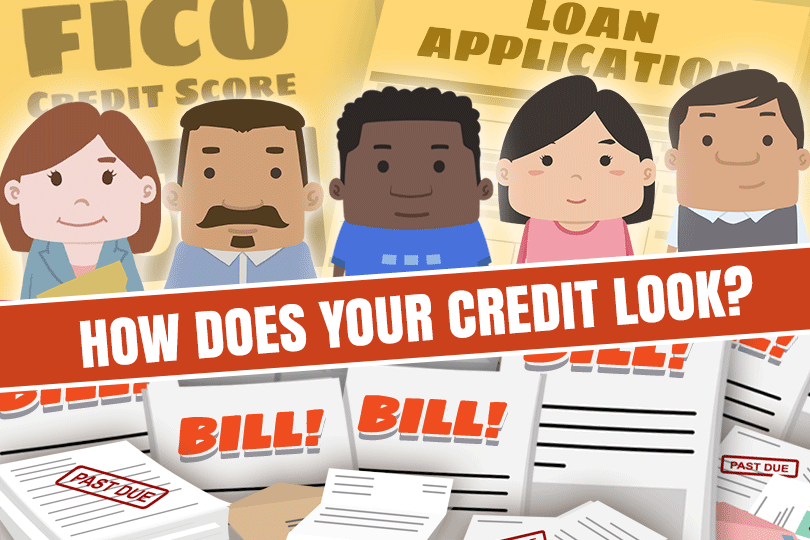First-Time Homebuyers and the FHA Loan Requirements
September 2, 2021
If you are a first-time home buyer interested in financing your home with an FHA loan, it is important you understand the guidelines, restrictions, and what it takes to get approved as an FHA borrower.
Credit Score and Down Payment Requirements
The FHA’s low credit score and down payment requirement is one of the main features appeals to first-time home buyers. The FHA requires a minimum credit score of 580 to be eligible for a minimum down payment of 3.5%, or as low as 500 if the borrower can afford to put down 10% on the home. However, it is important to remember that despite being insured by the FHA, individual FHA lenders may have “overlays” that require higher scores to qualify, in order to protect themselves even more.
Debt-to-Income Ratio
A feature that draws many first-time borrowers to FHA loans is that there is no income requirement. Instead, the FHA sets a maximum debt-to-income ratio to decide on whether borrowers are able to make their monthly payments. According to HUD Handbook 4000.1, FHA borrowers can have a “maximum qualifying ratio” 43%. The debt-to-income ratio is calculated by adding up the total mortgage payment for the new home, as well as any recurring monthly debt, which includes principal and interest, escrow deposits for taxes, hazard insurance, mortgage insurance premium, car loans, personal loans, student loans, credit cards, etc. That number divided by the borrower’s gross monthly income gives us the DTI ratio, which must fall under 43% to qualify.
Mortgage Insurance Premiums
The FHA requires a Mortgage Insurance Premium that helps to protect lenders from losses if and when borrowers are unable to repay their loans. There is also an Upfront Mortgage Insurance Premium (UFMIP) to be paid at closing that is typically 1.75% of the loan amount. The annual MIP cost depends on the length of the loan, the loan-to-value ratio, and when the loan was originated. This insurance helps the FHA continue to offer loans to first-time home buyers who are also high-risk, and it is important for those borrowers to know about the premium before being surprised by their first monthly payment.
FHA Limits for Borrowers
The FHA sets annual limits for the amount it will insure in home loans. The limits are based on county and property type, and the conventional loan limits set by Fannie Mae and Freddie Mac. The FHA loan limits are a deciding factor for many borrowers in whether they or not they apply for an FHA mortgage.
Eligible Property Types
In an effort to include more Americans in the housing market, FHA loans are available to finance various kinds of housing. The FHA offers Condo Loans, One-Time Construction Loans for new construction, and also Rehab Loans for fixer-uppers. They can be used to purchase single-family homes, multi-family homes with up to four units, and even manufactured homes on permanent foundations. The main rule to know is that any home purchased with an FHA loan must serve as the borrower’s primary residence. Investment properties are not eligible. There are exceptions for mixed-use properties, with at least 51% of the space dedicated to residence.
FHA loans can be a great option for many potential home buyers. If you are interested in applying for an FHA loan, talk to your loan officer to see if you meet all the requirements, and see if it is the best move for you!
------------------------------
RELATED VIDEOS:
FHA Loans Have Eligibility Requirements
The U.S. Government Backs Mortgages Through the FHA
Financed Properties Must Meet FHA Minimum Standards

FHA Loan Articles
February 17, 2025The federal government backs FHA home loans, which allows participating FHA lenders to offer lower down payment options and more lenient credit requirements. How much do you really know about your FHA home loan options and how they compare to other mortgage choices?
February 13, 2025For many college graduates, student loan debt is a concern. A common question is how this debt impacts the ability to buy a home. This Q&A explores the relationship between student loans and FHA loan approvals. How much do you know about how your student loan debt affects your ability to be approved for a mortgage?
February 12, 2025Choosing between FHA and conventional home loans can be daunting for some first-time home buyers. What are the concerns between these two programs, and what does each one offer the borrower? We examine some of the key issues in our question-and-answer session about FHA mortgages versus conventional loans.
February 11, 2025Established in 1934 as part of the National Housing Act, the FHA's primary mission is to stimulate the housing market by providing mortgage insurance to lenders. This insurance reduces the risk associated with lending to borrowers who may otherwise be considered higher risk, encouraging lenders to offer more favorable terms, such as lower down payments and more flexible credit requirements. A key element of the FHA program is its commitment to fair housing, which is deeply rooted in the Fair Housing Act.
February 10, 2025How much do you really know about the home buying process? One major factor in protecting your new investment is knowing how the title search process works and why you need to have one done. This quiz will assess your comprehension of what a title search entails, why it's so important when using an FHA loan, and how it protects you as a buyer. From identifying potential liens to guaranteeing clear ownership, a title search plays a critical role.







